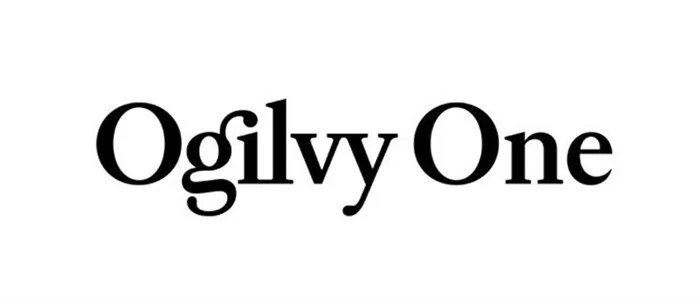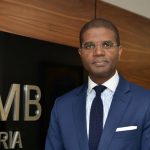Africa has a complex and longstanding challenge with governance. It is not surprising, therefore, that the continent is at the bottom of the development ladder, despite its over 1.2 billion population, land mass of over 30 million square kilometers and abundant natural resources.
To the discerning, beneath the African skies, a complex tapestry of political, social and economic dynamics has shaped the continent’s path. A small number of political players hijacked the governments, held the media in a vice-like grip and dispensed favour to their cronies, with no regard for the common good.
Anambra State Governor, Chukwuma Soludo, was spot on when he made the assertion, “Africa needs a new liberation movement. The first struggle was liberation from the colonial masters; the second will be liberation from rentier politics and politicians.”
Thankfully, a new chapter is emerging; where citizens are becoming increasingly vocal, demanding accountability and striving to shape the destiny of their nations. Experts posit that this may be the result of increasing social connections occasioned by social media, a rise in citizen engagement and activism in recent years.
In truth, a close look will indicate that a remarkable transformation is underway across Africa; an evolution that is challenging the long-established norms of governance and breathing life into the concept of citizen-led leadership. Citizens are on the rise.
Power of civil society
In many countries, civil society organisations, grassroots movements and other non-governmetal organiusations are essential components of democratic governance. They serve as checks on government power, promote citizen engagement and contribute to the development and implementation of policies that benefit society as a whole. Their influence and impact extend beyond national borders, as they often collaborate with international partners and contribute to global efforts to address shared challenges.
United States President Joe Biden once noted, “No fundamental social change occurs merely because government acts. It is because civil society, the conscience of a country, begins to rise up and demand – demand – demand change.” They are at the forefront of this transformation. CSOs such as #FixPolitics, grassroots movements and NGOs are wielding their influence to shape public policies and hold governments accountable.
For instance, in December 2018, widespread protests erupted across Sudan, initially sparked by rising food prices and economic hardship. But what started as a demonstration against the tripling of bread prices in the eastern city of Atbara quickly spread across the country. These protests evolved into a broader movement calling for the removal of President Omar al-Bashir, who had been in power for nearly 30 years. Citizens, especially young people, and civil society organisations organised and took to the streets demanding political change.
Youth-led initiatives
One of the most dynamic forces propelling this movement is the African youth. Everyone remembers what is now known as The Arab Spring. It began in Tunisia and spread across the Middle East and North Africa, and is a precursor to the youth-led revolutions in Africa. African youth, like their counterparts in the Arab world, are using technology to mobilise for social and political causes. From organising rallies to leveraging social media platforms, they are rewriting the narrative of governance.
The #EndSARS Movement in Nigeria, which saw thousands of young Nigerians take to the streets to demand an end to police brutality, is another shining example of citizens’ power to effect change. This youth-led movement forced the Nigerian government to respond to their demands, demonstrating that citizens are no longer willing to accept the status quo.
The Arab Spring and #EndSARS serve as powerful reminders of the potential of youth-led movements to bring about significant political change.
Citizen journalism and social media
In the digital age, the power of citizen journalism and social media cannot be underestimated. These tools have become essential in promoting transparency, exposing corruption and amplifying the voices of ordinary citizens. Social media platforms, suchTwitter and Facebook, have played a central role in building a sense of community, organising protests, as well assharing information and solidarity among young activists. The role of social media in sparking and sustaining movements, such as #EndSARS and the Arab Spring, underscores the transformative potential of digital activism.
John Campbell and Nolan Quinn, in their treatise, ‘What’s happening to democracy in Africa?’, stated, “The Internet and social media are increasingly empowering Africa’s youthful population to become politically active. This has been seen in Nigeria, where #EndSARS protesters organised online to demand police reforms; in Uganda, where presidential candidate, Robert Kyagulanyi Ssentamu, better known as BobiWine, used social media to catalyse his People Power movement; and in Ghana, where Twitter users instigated a national discussion on illegal small-scale mining.”
Today, citizen journalism and social media are playing a pivotal role in promoting transparency, shedding light on corruption and enabling citizens to bare their voices across the continent. They have broken the monopoly of traditional media as the custodian of information. In fact, in many instances, news stories first break on social media before finding their way to conventionalplatforms.
Social media platforms like Twitter, Facebook and YouTube play a significant role in spreading information, especially among young people. They can be a tool for mobilisation and coordination (think #EndSARS), citizen reporting (the 2023 General Elections) and gaining global attention (The Arab Spring).
Enter values-based leaders
The emergence of values-based leaders is crucial for the betterment of society and promotion of ethical governance. Institutions like the School of Public ,Policy and Governanceplay a pivotal role in building a pipeline of values-based leaders and influencing citizens’ choices.
SPPG is an unconventional school designed to attract, develop and produce a new generation of political leaders. Through its programmes, it aims to empower individuals and transform African politics by creating a massive, new values-based and disruptive-thinking political class equipped with the knowledge and skills needed to address complex development issues.
Undoubtedly, institutions like the SPPG are instrumental in nurturing values-based leaders who, in turn, influence citizens’ choices by promoting ethical governance, transparency and accountability. These leaders have a profound impact on the well-being and progress of societies, as they prioritise the values and principles that benefit the common good.
Conclusion
Africa is experiencing a profound transformation in its governance landscape, driven by citizen-led movements, especially the youth-led initiatives inspired by movements like #EndSARS and Arab Spring.
Today, citizens are no longer passive recipients of policies, but active architects of their nations’ futures. African citizens are shaping a new leadership model for good governance. It is evident that the continent’s potential is boundless, and its future is being written by its own people.
Africa’s youth demographic is a defining characteristic of the continent, and the energy, creativity and aspirations of the young population hold the promise of a brighter future. Engaging and empowering young Africans in various aspects of society, including education, entrepreneurship and governance, is crucial for unlocking their potential and driving positive change across the continent. The resolute ascent of its citizens is a narrative of hope, resilience, and the pursuit of a brighter future.
While these efforts are promising, addressing governance challenges in Africa requires sustained commitment, institutional reforms and international support to ensure that citizen engagement leads to meaningful change and improved governance. Governments have a part to play. According to Bill Gates, “Governments will always play a huge part in solving big problems. They set public policy and are uniquely able to provide the resources to make sure solutions reach everyone who needs them.”















































